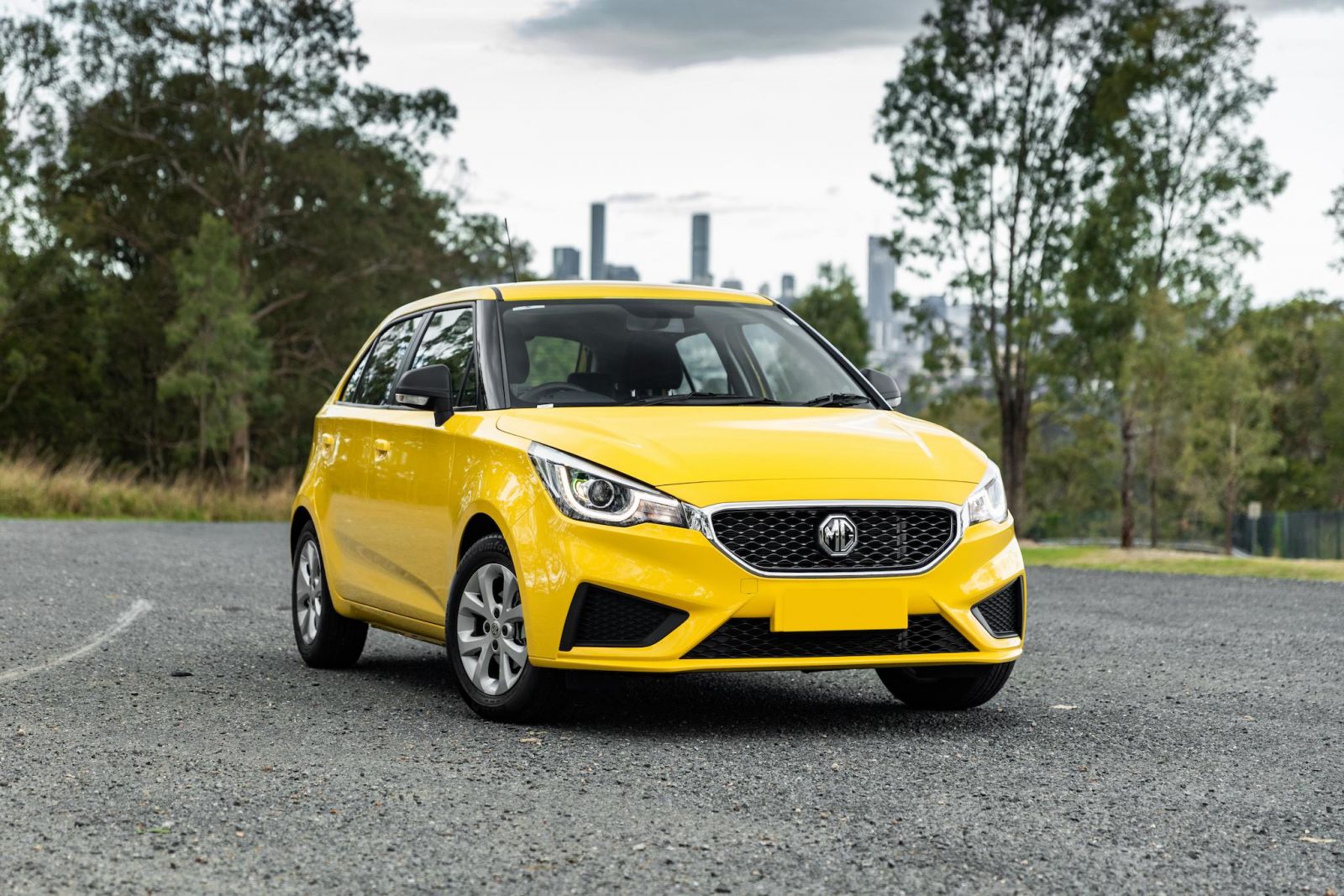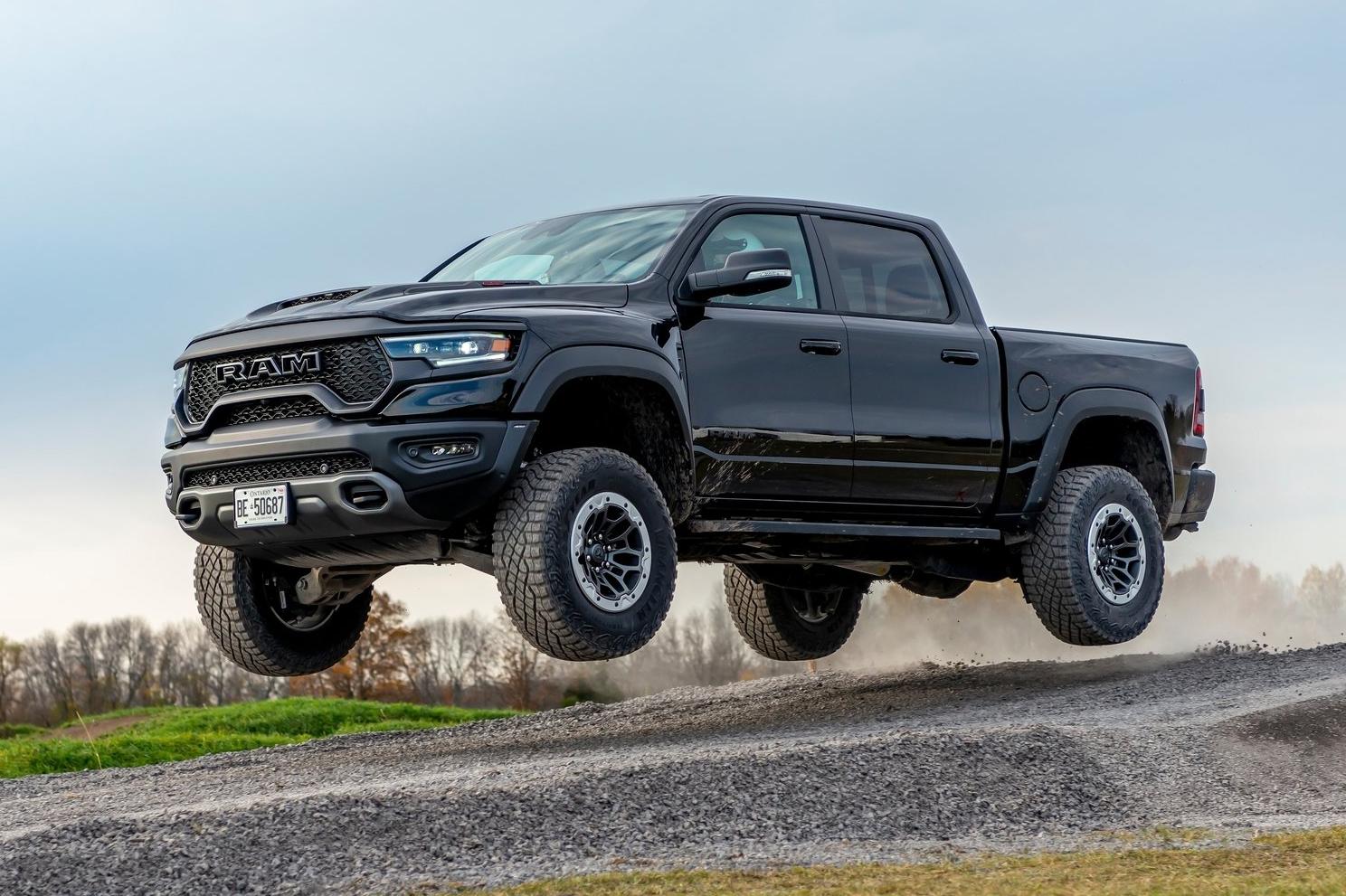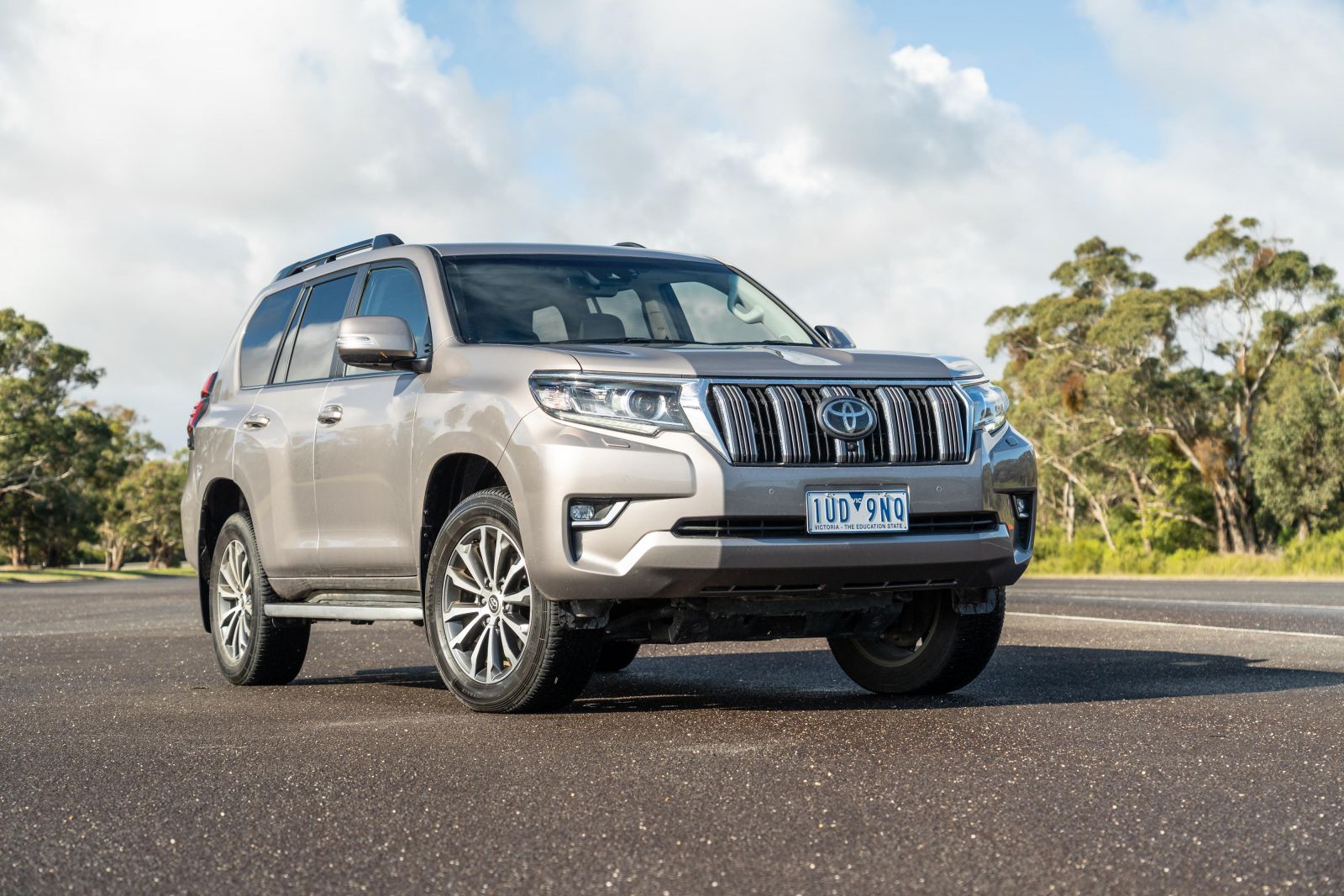It isn’t a requirement for new vehicles sold in Australia to be crash-tested by safety authority ANCAP, and there are various popular models on sale today that have never been assessed locally.
In addition, a six-year ratings validity period has come into effect, with a raft of vehicles losing their safety ratings from January 1, 2023.
“ANCAP encourages vehicle manufacturers to put forward new or updated models for assessment/re-assessment at any point in their model lifecycle,” said a spokesperson for the safety authority.
“ANCAP maintains close dialogue with manufacturers in the lead up to and following rating expiry to encourage safety upgrades to current criteria,” the spokesperson said.
“There are a number of manufacturers that have already made product planning updates as a result – bringing forward market launch timelines to offer new and updated models to the AUS/NZ markets sooner than originally planned.”
ANCAP cites the Isuzu D-Max and MU-X, Mazda BT-50, Toyota HiLux, and Volkswagen Polo as examples of vehicles that have been reassessed, and says it expects a number of additional reassessments to be published this year.
Given there are so many vehicles that have either lost their rating or which have never been assessed, we’ve reached out to car brands to see if there are any plans to address this.
We’ve steered clear of the usual suspects like exotic brands Ferrari and Lamborghini, which never have their vehicles assessed by either ANCAP or Euro NCAP, its European counterpart with which it has harmonised its testing protocols.
However, there’s still a wide range of popular vehicles like the MG 3 and Mitsubishi ASX which have no rating on the books.
BMW X6 and X7
While the BMW X5 has a five-star ANCAP rating from 2018 – albeit one that applies only to 3.0-litre six-cylinder petrol and diesel models – the related X6 and X7 have never been assessed.
BMW Australia was contacted for comment but didn’t respond in time.
BMW 2 Series Coupe
The recently redesigned 2 Series Coupe received a four-star rating from Euro NCAP last year, however ANCAP has yet to award a rating.
While the two authorities have harmonised testing protocols, there can be differences in category ratings, and vehicles tested in Europe may not be of the same specification as those in Australia.
BMW Australia was contacted for comment but didn’t respond in time.
Chevrolet Silverado
While the Chevrolet Silverado was assessed by the Insurance Institute for Highway Safety (IIHS) in the US, receiving an overall Good rating, it has not been tested by ANCAP.
No Euro NCAP rating applies, either, as the vehicle isn’t sold there.
“GMSV can confirm that Silverado meets Australia regulatory requirements and we have no plans to test to ANCAP,” said a spokesperson for GMSV.
Fiat 500
The Fiat 500 had a five-star rating from all the way back in 2008, which no longer applies as of January 1, 2023.
A spokesperson for Stellantis Australia confirmed there are no plans to have the current 500 retested in the immediate future.
The unrelated electric 500e, a considerably newer vehicle, has a four-star rating from ANCAP with a 2021 date stamp.
LDV G10 and V80
The LDV G10 had a three-star rating from ANCAP with a 2015 date stamp, while the V80 also had a three-star rating albeit with a 2013 date stamp. Both of these ratings have expired as of January 1, 2023.
LDV distributor Ateco had no comment.
Both vehicles appear to be towards the end of their lifecycles, with LDV previously confirming a new mid-sized van would join its line-up in 2023. Notably, the new LDV MIFA – which replaced the people-mover version of the G10 – has received a five-star rating.
Maserati Ghibli, Levante, and Quattroporte
As of January 2023, the Maserati Ghibli’s five-star rating from 2014 no longer applies and the vehicle is now un-rated.
The Levante and Quattroporte, in contrast, have never been tested by either authority.
Maserati distributor Ateco had no comment. It appears unlikely any would be tested by ANCAP or Euro NCAP considering they’re at the end of their life cycles.
Mazda 2 and CX-3
The Mazda 2 and CX-3 both had five-star ANCAP ratings with 2015 date stamps. These have now expired as of January 1, 2023.
Mazda Australia didn’t confirm whether these vehicles will be re-tested. The CX-3 was comfortably the best-selling vehicle in its segment last year, while the 2 is among the best-selling light cars.
“We cannot share future product plans, but it’s worth noting our strategy of continuous improvement means that we continue to deploy new active and passive technology as it becomes available across model lines,” said a spokesperson for Mazda Australia.
The spokesperson noted that both the Mazda 2 and CX-3 have received significant upgrades in terms of standard safety equipment since their launches in 2015.
For example, the 2 was launched with no standard active safety technology, but gained standard autonomous emergency braking across the range in 2017, followed by the addition of standard reverse AEB, blind-spot monitoring, rear cross-traffic alert, and lane-departure warning across all models from 2019.
Mercedes-Benz E-Class
The Mercedes-Benz E-Class’ five-star ANCAP rating from 2016 is no longer valid as of January 1.
“For the current E-Class, it was tested by Euro NCAP in 2016 and there are no immediate plans to have it retested,” said a spokesperson for Mercedes-Benz Australia.
“There are plans to have Euro NCAP test the new E-Class (214) before launch.”
A new generation of E-Class is fast approaching, with the German brand previously revealing the new-generation model’s interior. It’s expected to arrive locally closer to 2024.
Mercedes-Benz GLS
The current-generation Mercedes-Benz GLS has never been tested by ANCAP or Euro NCAP, though the related GLE has a five-star rating with a 2019 date stamp.
“The current GLS was not made available for testing nor was it requested by Euro NCAP. There are no immediate plans to have the vehicle tested by Euro NCAP,” said a spokesperson for Mercedes-Benz Australia.
A mid-life update was revealed earlier this month for the vehicle, indicating a new-generation model is still a few years away.
Mercedes-Benz Vito, Valente, V-Class and Marco Polo
The Mercedes-Benz Vito and its people-carrying counterparts the Marco Polo, Valente and V-Class all had a five-star rating from 2014 that no longer applies from January 1.
“Mercedes-Benz Vans has always been a driver of innovation and a pioneer in the introduction of modern safety technologies in the van segment. Today, our vans feature a wide range of safety and assistance systems, many derived from Mercedes-Benz passenger cars,” said a spokesperson for Mercedes-Benz Vans Australia.
“We are constantly working on new and improved safety and assistance systems to further advance the safety credentials of our vehicles.
“To this end, we also incorporate findings from external (crash) tests, such as ANCAP (AU/NZ) or EuroNCAP (Vans) (Europe), which make such tests valuable to us.
“In AU/NZ the star rating of the Vito expired due to the sunset/expiry of ANCAP pathway and roadmap ratings. A star rating for the next Vito facelift will be explored closer to its market release.
“However, under the ANCAP and also the EuroNCAP (Vans) ratings based on the commercial vans protocol, currently the Vito has a gold ANCAP rating.”
MG 3
The MG 3 has never received a rating from ANCAP, though Euro NCAP awarded it three stars back in 2014. This rating has subsequently expired.
“The MG3 is approaching the end of its product life cycle and we’re excited about what the future holds as we push forward with new models paired with updated safety features and innovative technology in our ever growing range of vehicles,” said a spokesperson for MG Motor Australia, ruling out any plans to have the vehicle reassessed.
“The current MG3 will co-exist in our range as is.”
It stands in contrast with the ZS, which has a four-star rating, and the HS which has a more impressive five-star rating.
Mini Hatch
The three-door Mini Hatch had a four-star rating from 2014, though this is no longer valid as of January 1.
It’s at the end of its lifecycle, with separate new-generation petrol and electric hatches reportedly debuting in 2024.
Mini Australia was contacted for comment but didn’t respond in time.
Mitsubishi ASX, Pajero Sport, and Triton
The Mitsubishi ASX received a five-star rating in 2014, with the Triton and Pajero Sport receiving five-star ratings the following year.
All three are now unrated as of January 1, 2023.
“Given where the vehicle are in their model cycles, and the costs involved in re-testing, the Mitsubishi ASX, Pajero Sport and Triton models will continue to be on-sale as ‘untested’,” said a spokesperson for Mitsubishi Motors Australia.
“The actual safety inherently built into all our products hasn’t changed for these models – they are as safe as they were on 31 December, 2022, and Mitsubishi continues to prioritise safety throughout its range.”
A new-generation Triton is set to be revealed this year, with a related Pajero Sport expected to follow.
The future of the ASX, however, is unclear. Mitsubishi hasn’t committed to bringing the new Renault Captur-based ASX offered in Europe to Australia, while also ruling out a production version of the XFC concept for not meeting Australian-market requirements.
That could mean the current vehicle, which dates back to 2010, will be around for a while yet.
Nissan Navara and Patrol
The Nissan Navara’s five-star ANCAP rating from 2015 no longer applies from January 1, while the current Y62-series Patrol has never been assessed by ANCAP.
“There are no plans to re-test the Navara and no plans to test Patrol,” said a spokesperson for Nissan Australia.
Both vehicles are understood to be towards the end of their lifecycles.
Peugeot 3008 and 5008
The Peugeot 3008 and its three-row 5008 counterpart had five-star ratings from ANCAP with a 2016 date stamp. These are now no longer valid from January 1.
“Whilst there are no plans currently for further ANCAP testing, the Peugeot 3008 and 5008 offer a broad range of safety technologies and real-world safety is embedded into the overall design for both models,” said a spokesperson for Peugeot Australia.
“We’re unable to comment on Euro NCAP.”
Replacements for the SUVs are due over the next two years, with the next-generation 3008 to be revealed in the second half of 2023.
Porsche Cayenne and Macan
Porsche’s popular Cayenne has a five-star Euro NCAP rating from 2017, which wasn’t carried over by ANCAP.
Between 2015 and 2017, ANCAP was in a transition period where it used both its own and Euro NCAP policies and protocols to determine safety ratings before the two organisations moved entirely to shared protocols.
Some vehicles tested by Euro NCAP during this period have ratings from ANCAP, however the Cayenne doesn’t.
As for the Macan, its five-star rating from 2014 has expired. We’ve contacted Porsche Cars Australia to confirm if there are any plans to have this vehicle reassessed.
Ram 1500
The Ram 1500 hasn’t been tested by ANCAP, though the latest DT series has been tested by a major US safety authority – if one with a different set of testing protocols to ANCAP.
The DT-series 1500 was given the Top Safety Pick title by the US Insurance Institute of Highway Safety (IIHS) in 2022. This award applied only to vehicles with optional features and specific headlights.
Ram Trucks Australia had no comment when asked if there were plans to have the vehicle assessed locally.
Renault Trafic
The current Renault Trafic has never been assessed by ANCAP, though the people mover version not sold here was tested by Euro NCAP back in 2015.
Renault Australia had no comment.
SsangYong Musso and Rexton
Neither the SsangYong Rexton nor Musso have a rating from ANCAP.
SsangYong Australia was contacted for comment but didn’t respond in time.
Suzuki Ignis, S-Cross, and Vitara
The Suzuki Vitara had a five-star rating from ANCAP based on testing conducted in 2015. This is no longer valid as of January 1.
“Vitara’s rating did expire in January and since it has reached the latter part of its model life cycle we have chosen not to retest it,” said a spokesperson for Suzuki Australia.
“We have no plans at this stage to test Ignis or S-Cross either.”
The new S-Cross is a heavy update of the previous model, which had a 2013-dated five-star rating from ANCAP.
The Ignis had no ANCAP rating, though Euro NCAP assessed it in 2016 and gave it a split rating.
Models with the optional safety pack, which features autonomous emergency braking (AEB), received five stars, while those without had a mere three-star rating. No Ignis models sold here offer AEB.
Toyota LandCruiser Prado
The Toyota LandCruiser Prado, the best-selling vehicle in its segment, had a five-star ANCAP rating from 2011. This is no longer valid as of January 1.
“There are currently no plans to retest the LandCruiser Prado,” said a spokesperson for Toyota Australia.
“It is an extremely safe vehicle, which is recognised by customers who bought our best-selling large SUV in record numbers last year.
“We expect to continue offering customers a Toyota LandCruiser Prado for many years to come.”
The spokesperson noted every Prado comes with a long list of standard active safety technology, including autonomous emergency braking, adaptive cruise control, lane-keep assist, blind-spot monitoring and rear cross-traffic alert.
The venerable Prado is rumoured to be replaced over the next couple of years, but no official launch timing has been indicated.
Volkswagen Passat, Tiguan, and T6.1 range
The Volkswagen Passat and Tiguan had five-star ratings from 2015 and 2016, respectively, which are no longer valid as of January 1.
“Both the Tiguan and Passat are demonstrably more technologically advanced now than at launch. Volkswagen has invested heavily in technology such as adaptive cruise control and Travel Assist, to name only two examples of technology that wasn’t available or standard on the Tiguan when specification was announced in 2016,” said a spokesperson for Volkswagen Australia.
“The Tiguan we are most actively working with the factory to secure more supply on because it is our most in-demand vehicle.
“If you compare a now readily available $54,990 drive-away Tiguan Allspace Adventure to any rival, for example, customers will find much more than merely a competitive level of safety technology.”
Replacements for both the Tiguan and Passat will be revealed during 2023, so both vehicles are at the end of their lifecycles. Volkswagen has yet to confirm the next-generation, wagon-only Passat for Australia, while the Tiguan will potentially launch in 2024. A related Allspace version will come later, as this longer, three-row version is on a different product cycle.
Volkswagen’s T6.1 range of vans and people movers have not been tested by ANCAP or Euro NCAP, though the upcoming T7 Multivan has a five-star ANCAP rating. Likewise, the upcoming ID. Buzz has a five-star Euro NCAP rating.
































